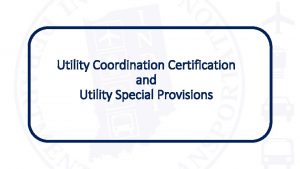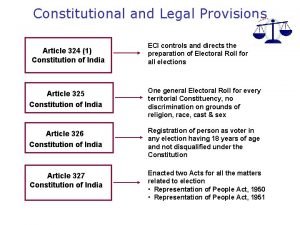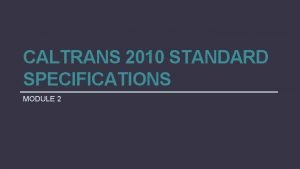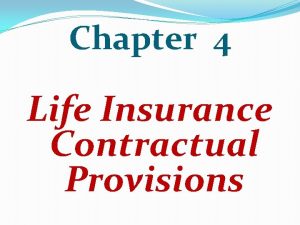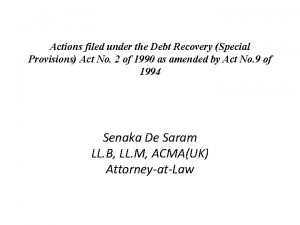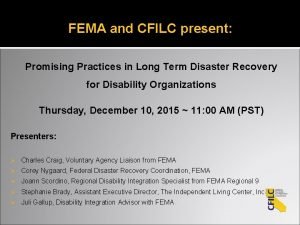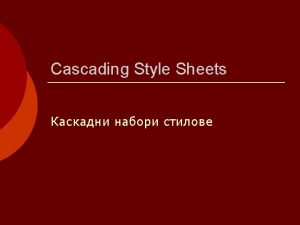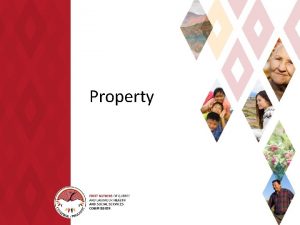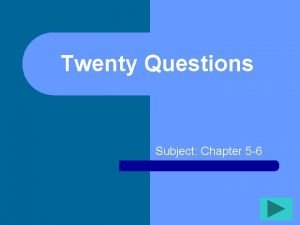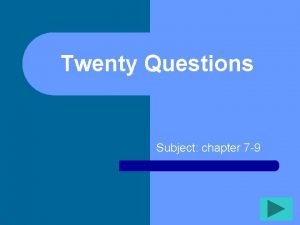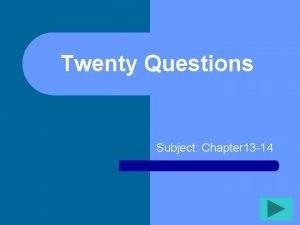Chapter Twenty Miscellaneous Provisions Regarding Property of the







- Slides: 7

Chapter Twenty. Miscellaneous Provisions Regarding Property of the Estate n After reading this chapter, you will be able to: n n List the restrictions placed upon a trustee’s use of an estate’s cash assets Describe the disposition of burdensome or valueless property through the abandonment procedure Understand some miscellaneous provisions concerning utility service and discrimination based upon one’s status as a bankruptcy debtor List the conditions under which a bankruptcy estate may obtain credit

Preservation of Cash n The ultimate asset that a trustee will administer in any estate is cash. n Under nonbankruptcy law, nonbankruptcy trustees are generally permitted to invest trust funds in any prudent business manner. n A bankruptcy trustee is not given broad discretion to invest estate assets. A bankruptcy trustee is quite restricted in the uses that may be made of an estate’s cash.

Utility Service/Discrimination n A public utility may not refuse or discontinue service because a debtor initiates a bankruptcy proceeding and lists the utility as a creditor. n The public utility may, however, request a reasonable deposit or security from the debtor or trustee to serve as adequate assurance of future performance.

Abandonment n The act of a trustee to remove from property of the estate assets that are burdensome or of inconsequential value to the estate. n An asset with no equity or a meritless personal injury claim are common examples. n Abandonment is governed by Section 554 of the Bankruptcy Code.

Practice Pointer n Abandonment simply returns the asset to its prepetition status and removes it from the bankruptcy process and the protection of the automatic stay.

Obtaining Credit n Section 364 regulates the obtaining of credit by a bankruptcy estate. n A Chapter 7 estate will only make use of this provision if a trustee is authorized to operate a business or in extraordinary circumstances. n A reorganization debtor will frequently make reference to or use of this provision.

Health Care Bankruptcies n BAPCPA added provisions designed to account for the disposition of patient records and the transfer of patients from a closing facility in a health care business bankruptcy. n The primary purpose of these provisions is to protect the privacy of the records and the safety of the patients.
